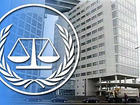A meeting will be held on Monday between Lebanese security forces and agencies tasked with protecting the United Nations headquarters in Beirut to reconsider the measures taken to secure the building against any possible threat, An Nahar reported.
The security measures taken near the ESCWA building have caused a major bumper-to-bumper traffic near the U.N. Economic and Social Commission of Western Asia building in Beirut.
 Full Story
Full Story
Former President Amin Gemayel said that the Phalange Party won’t participate in a conference that is being organized by top March 14 figures to confront Maronite Patriarch Beshara al-Rahi’s recent controversial stances on Hizbullah’s arms and the situation in Syria.
Gemayel told al-Jadid TV on Sunday that his Phalange party was not invited to the summit and said he rejected the “loud dispute” with al-Rahi.
 Full Story
Full Story
The cabinet is not expected to discuss this week the funding of the Special Tribunal for Lebanon probing the assassination of former Prime Minister Rafik Hariri.
High-ranking sources told An Nahar newspaper on Monday that the government will not discuss on Wednesday the payment of Lebanon’s share in the STL.
 Full Story
Full Story
The cabinet is not expected to make new appointments to state positions this week amid a dispute inside the government over Free Patriotic Movement leader Michel Aoun’s insistence to give the majority of Christian shares to his parliamentary Change and Reform bloc.
Ministerial sources told several Beirut dailies that the appointments are not on the agenda of the cabinet that is scheduled to meet on Wednesday. But ministers could raise the issue if ongoing consultations lead to an agreement on the name of the president of the Higher Judicial Council.
 Full Story
Full Story
More than 20 Syrian soldiers have infiltrated 500 meters deep into Lebanese territory in the northern province of Akkar, An Nahar newspaper reported on Monday.
It quoted sources on the Lebanese-Syrian border as saying that the soldiers entered the area of Rajam Beit Khalaf and al-Kalkha in Wadi Khaled.
 Full Story
Full Story
Tehran's two-day International Conference on Palestine supported in its closing statement Lebanon and its resistance against Israel.
“We support the Lebanese peoples' struggle and the Lebanese resistance against the Zionist occupiers, and we support the efforts to free the remaining land, especially Shebaa farms and the Kfarshoubahills,” the statement said.
 Full Story
Full Story
Speaker Nabih Berri said on Sunday that Israel is violating Lebanon’s sovereignty, during a meeting with Iranian President Mahmoud Ahmadinejad in Tehran.
“The region is passing through a critical stage and Lebanon is affected by these developments, it’s not an island, especially since Israel still occupies part of its land, which means its sovereignty is incomplete,” Berri stressed.
 Full Story
Full Story
Loyalty to the Resistance bloc MP Hassan Fadlallah said on Sunday that the cabinet is strong and takes its decisions based on consensus between all the members.
“The cabinet has a real chance to develop the country,” Fadlallah said.
Full StoryA Lebanese army explosives expert defused a bomb found at the entrance of Ain el-Hilweh Palestinian refugee camp near the southern city of Sidon on Sunday, the National News Agency reported.
NNA said that the bomb was found along with tapes and a battery at al-Tahtani entrance of Taamir Ain el-Hilweh.
 Full Story
Full Story
Deputy Speaker Farid Makari blamed the March 14 forces for not taking fundamental stances from the government after the indictment of four Hizbullah members in ex-Premier Rafik Hariri’s assassination.
In an interview with the Kuwaiti al-Seyassah newspaper on Sunday, Makari called for a strong confrontation of the Hizbullah-led government.
 Full Story
Full Story



